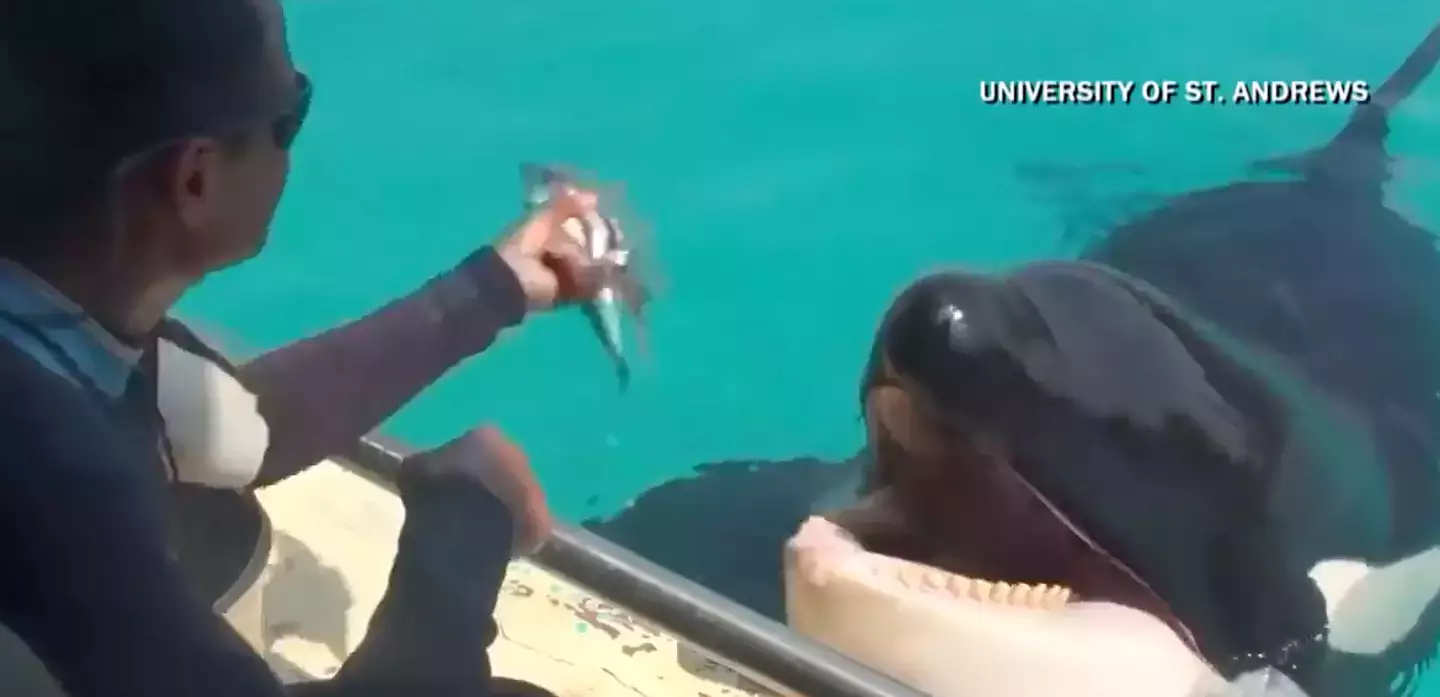One interesting fact about orcas is their ability to replicate simple human words like ‘hello’ and ‘bye bye’.
This unusual ability has been documented, and you can listen to a recording of it below. Be advised, the sound is rather unsettling.
This recording is from a 2018 study featured in the journal Proceedings of the Royal Society B: Biological Sciences, where experts from Germany, Spain, the UK, and Chile investigated and documented orcas’ capacity to mimic human speech.
Josep Call, a professor specializing in the evolutionary origins of the mind at the University of St Andrews, and a co-author of the study, mentioned that the researchers aimed to test “how flexible a killer whale can be” in replicating unfamiliar sounds.
“We thought what would be really convincing is to present them with something that is not in their repertoire – and in this case ‘hello’ [is] not what a killer whale would say,” Call commented, according to The Guardian.
The research began by training Wikie, a 14-year-old orca, to imitate three familiar orca sounds made by her three-year-old calf, followed by introducing her to five unfamiliar orca sounds.

In the final stage, Wikie heard a human producing three orca sounds and six human sounds, including ‘hello’, ‘Amy’, ‘ah ha’, ‘one, two’ and ‘bye bye’.
Upon reviewing Wikie’s responses, the researchers observed that she could quickly replicate the sounds, accurately copying two of the human utterances on the first attempt.
Recordings of Wikie capture her attempts to mimic the sounds of the human speaker, and although some attempts resemble something from a horror movie, others are surprisingly accurate.
Listeners have found the recordings unsettling, with one commenting, “The hello sounded demonic.”
Another remarked humorously, “OK, that second hello was a little demonic. Was that really an orca, or the Devil speaking through a ghost box? The funniest and scariest thing EVER! That’s my day, can’t stop laughing my head off.”

Despite the eerie nature of the recordings, many viewers are amazed by the whale’s ability to mimic human sounds.
“This makes me tear up, the fact that we live in such a beautiful world filled with wonderful creatures,” one person expressed.
Though Wikie only correctly produced the sound ‘hello’ more than half of the time on subsequent trials, the study provides initial evidence that orcas might learn sounds through vocal imitation.
“This is something that could be the basis of the dialects we observe in the wild – it is plausible,” Call noted.
Wikie’s responses are particularly impressive considering the significant differences between orca and human vocal anatomy.
Call explained, “Even though the morphology [of orcas] is so different, they can still produce a sound that comes close to what another species, in this case us, can produce.”
Nevertheless, Call clarified, “We have no evidence that they understand what their ‘hello’ stands for.”
While the findings from Wikie’s case offer initial insights, Call emphasized that further experiments with wild orcas are needed to enhance understanding of their sound learning processes.
